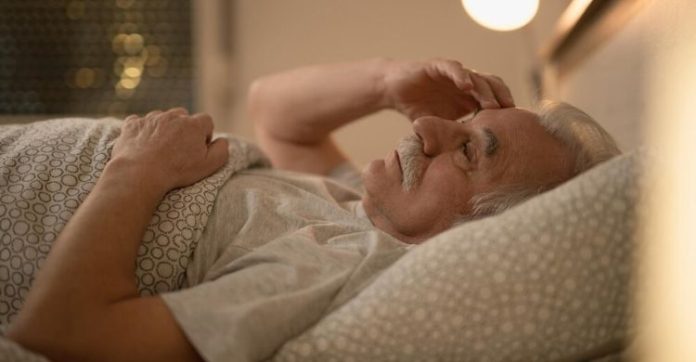Getting a good night’s sleep can feel like a distant memory as we age. Sleep, once taken for granted, may become more elusive, leaving older adults feeling drained during the day. Yet, sleep remains just as vital in old age as it does in youth, playing a pivotal role in maintaining physical health, emotional well-being, and mental sharpness.
However, sleep disorders in elderly are often overlooked, even though they can significantly affect the quality of life.
In this blog, we will explore the most common sleep disorders in old age, what causes them, and how we can help the elderly get the rest they deserve.
What are Sleep Disorders?
Sleep disorders take hold of your ability to get the rest your body requires and maintain wakefulness. There are around 80 sleep disorders that impact:
- How well do you sleep (quality of sleep)?
- When do you fall asleep, and if you can stay asleep (timing)?
- How much sleep and wakefulness do you get (quantity or duration)?
With time, everyone experiences problems with sleep; however, you might have a sleep disorder in case:
- You often have trouble sleeping.
- You feel weary during the day even though you slept for at least 7 hours the night before.
- You face challenges to perform regular daytime activities.

Elderly and Sleep Problems
Elderly people tend to achieve less nighttime sleep than younger people. However, it cannot be assumed that elderly people require less sleep, and older adults have more nighttime arousals and awakenings. Overall, the sleep-wake cycle in old age may be shattered, with interrupted nighttime sleep and daytime wakefulness interrupted by naps.
The profound stages of non-REM sleep are usually decreased or nonexistent in older adults; however, REM sleep tends to be preserved. However, a mild deterioration in the quality of sleep may be expected in the aging process.
It’s essential that a senior patient’s complaint of disrupted nighttime sleep or impaired daytime functioning due to excessive sleepiness be comprehensively evaluated. This thorough evaluation is necessary to understand and address the unique needs and sleep issues in elderly.
Another standard age-associated sleep change relates to the circadian rhythm of the typical sleep period. Although exceptions exist, elderly persons tend to sleep earlier in the evening and awaken earlier in the morning. Early-morning awakening is a frequent complaint in old age.
Less common but sometimes dramatic in elderly persons is the development of the night owl pattern, with bedtime delayed until the early morning hours. This sleep-wake cycle tolerated in early life during career days when the cues of early-morning bright light were more substantial and the regularity of sleep-wake hours was more significant. After retirement, however, these cues weaken, and the sleep-wake cycle becomes delayed by several hours.
Learn Why Lifelong Learning is Important for Elderly
Sleep Disorders in Seniors (Elderly)
Sleep disorders in elderly are relatively common. These disorders result in many getting less sleep than they need, which may be due to:
- health issues
- medications
- underlying sleep disorders
Poor sleep can be a precursor to significant health issues such as:
- obesity
- cardiovascular disease
- diabetes
It’s important to understand that while sleep patterns change as people age, disturbed sleep and waking up tired are not normal for aging. This reassurance can help you feel understood and validated in your sleep concerns.
Older people may:
- sleep fewer hours
- have trouble falling asleep
- get less quality sleep
- wake up frequently in the night or early morning
This leads to health concerns like increased fall risk, daytime fatigue, and even mental health issues such as depression and anxiety.
About 50 percent of people over 55 have trouble falling asleep and maintaining a good night’s rest. Most studies say that cognitive behavioral therapy for sudden and chronic insomnia is preferable to medications, which have unwanted side effects like nausea.
Causes of Sleeping Problems in Elderly
It’s important to understand that sleep issues, particularly insomnia, are a common concern for people over 65. Insomnia, characterized by staying asleep, trouble falling asleep, or waking up too early, is a prevalent issue many older adults face. This can lead to a less refreshing sleep quality than desired, a shared experience among many in this age group.
Medical illness
With age, you are more likely to have a chronic medical illness that often interferes with how you sleep. Diseases that can affect your sleep include:
- Heart disease
- Asthma and other respiratory diseases
- Arthritis
Fever, itching, minor pain, or coughing can cause mild insomnia.
Medications
It’s important to note that many medications used to manage chronic conditions can also disrupt sleep. Even a minor adjustment in the timing or dosage of these medications can significantly impact sleep quality and daytime functioning.
Some people sleep better by using sleeping pills from time to time. However, many older people rely too much on drugs to sleep. Studies show that a few common drugs may not even work well in older people, worsening their sleep problems.
Learn about Common Geriatric Health Problems & How to Manage Them?
Other ways to help older adults sleep better include:
- Limiting naps during the day
- Physical and social activities during the day
- Reducing noise in the nursing home at night
- Exposure to bright lights and sunlight during the daytime
Sleep disorders
Many sleep disorders are more common in older people. Having a medical condition might cause the sleep issue to be overlooked. Not all sleep disorders have obvious signs that can be seen or felt. Detecting and treating a sleep disorder can significantly improve the quality of sleep.
Alcohol
While alcohol can initially induce sleep, it often leads to disrupted sleep patterns later in the night. Many older adults experience early morning awakenings after consuming alcohol in the evening. To promote better sleep, it’s advisable to avoid alcohol consumption within six hours of bedtime and to moderate overall alcohol intake.
Depression
Significant life changes are expected as you grow older. These changes can cause feelings of depression. Over time, it progresses to the point where feeling blue is just a regular part of your life.
Depression can significantly disrupt the quality of your sleep. As poor sleep progresses, some older people stop eating regularly. Also, they may lose their usual interest and pleasure in their daily activities.
Loss of a Loved One
Losing a loved one makes you feel isolated and alone, which leads to sleep and depression problems. Surveys show that 75% of widows have a difficult time sleeping a month after the death of their spouse. One year later, 50% reported that their sleep problems had not disappeared.
Common Sleeping Problems in the Elderly
Older adults most commonly experience sleep problems like:
- Obstructive sleep apnea, or brief interruptions in breathing during sleep, occurs in case the upper airway repeatedly gets blocked. It affects an estimated 20 to 60% of people over 65.
- RLS (Restless leg syndrome), or the overwhelming need to move your legs during sleep. It may start at any age, severely affecting middle-aged and older adults.
- REM behavior disorder (RBD), or the vivid acting out of dreams during sleep. It occurs when the brain chemical paralyzes your muscles and does not function correctly during REM sleep.
- Circadian rhythm sleep disorders disrupt the body’s internal clock’s everyday sleep-wake cycle. As people age, their internal clocks become less efficient, resulting in waking up and falling asleep earlier.
Impact of Poor Sleep on Elderly Health
The effects of poor sleep go beyond just feeling tired. For older adults, sleep deprivation can lead to serious health issues:
- Cognitive Decline: Persistent poor sleep is linked to memory problems and an increased risk of cognitive disorders like dementia.
- Increased Risk of Falls: Feeling groggy during the day can make older adults more prone to falls, a significant concern given the higher risk of injury in this age group.
- Weakened Immune System: Sleep is essential for immune function, and lack of rest can make older adults more susceptible to infections.
- Worsening of Chronic Conditions: Poor sleep can exacerbate existing conditions like heart disease, diabetes, and high blood pressure, creating a vicious cycle of deteriorating health.
Treatment for Sleep Disorders in Seniors
Note that treatment for sleep disorders is not a one-size-fits-all solution. It’s a personalized journey that often involves a unique combination of medications, natural remedies, and changes to sleep routines. Experts advise that older individuals actively craft their treatment plan, ensuring it’s tailored to their specific needs and preferences.
Cognitive behavioral therapy (CBTi) is a leading option for treating insomnia. This technique integrates various mental and behavioral strategies and is designed to enhance both short—and long-term sleep quality, making it a powerful tool in the fight against insomnia.
Medications
When it comes to medications for insomnia, it’s crucial to seek professional guidance. Several drugs may be beneficial, but working with a healthcare professional to identify the best options and discuss potential side effects before embarking on any new medication regimen is essential.
Some options include:
- benzodiazepines
- melatonin receptor agonists
- nonbenzodiazepine hypnotics
- antihistamines
- antidepressants
Natural Remedies
A 2018 study says melatonin and valerian root are alternative or complementary insomnia treatments. Although both are associated with minor side effects, lack of regulation means formulas and doses vary between brands and products.
Just as with any other medication, it’s crucial to consult a healthcare professional prior to considering the use of melatonin, valerian root, or other supplements or herbs. This step ensures you receive the best guidance and support, helping you make informed decisions about your treatment plan.
Other Treatments
Various nonpharmaceutical options help with sleep disorders in old age. Some suggestions included developing healthy sleep habits, such as:
- eating a balanced diet that contains sufficient iron and vitamins (geriatric diet)
- avoiding nicotine, alcohol, and caffeine close to bedtime
- getting regular exercise
- avoiding naps
- making the bedroom an inviting space for sleep with cool temperatures, making it dark, and not having electronic devices
- going to sleep and waking up around the same time each day
- eating meals on a regular schedule
- avoiding particular medications
- taking actions to manage stress
- limiting fluids before bedtime

Conclusion
Good sleep is essential at any age, but it’s especially important for older adults. The good news is that there are practical solutions to many sleep disorders affecting the elderly. By recognizing the signs of sleep problems and taking action—whether through lifestyle changes, medical treatment, or natural remedies—we can help older adults enjoy restful, restorative sleep. Assisting the elderly get the sleep they need can improve their health, mood, and quality of life—because everyone deserves a good night’s rest.



